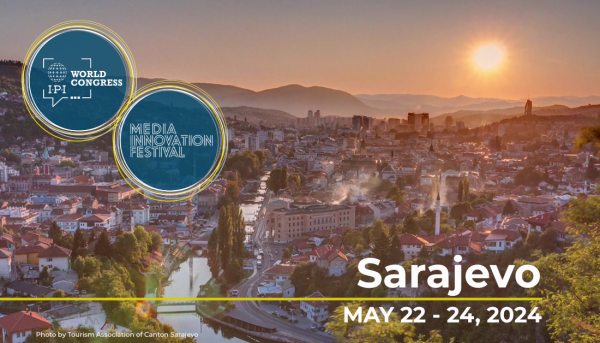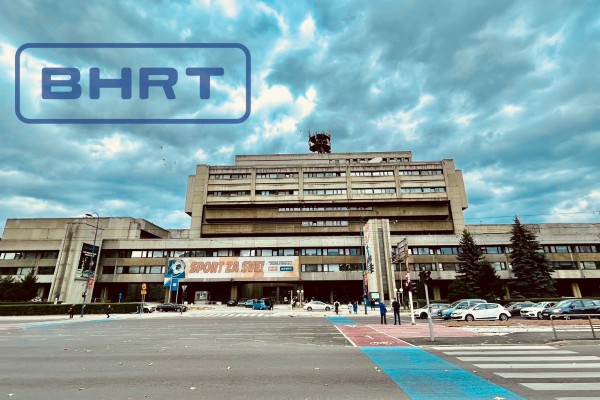An Italian television station argued before the European Court of Human Rights (ECHR) yesterday that the Italian government should pay the station over two billion Euros for not allowing it to take to the airwaves for eleven years.
Centro Europa 7 told judges at the Strasbourg court that the sanction was the only way to hold the government accountable for allegedly breaching the station’s rights by failing for so long to allocate the station a frequency despite approving its request for a broadcast license in 1999.
Ottavio Grandinetti, an attorney representing the station, told the International Press Institute (IPI) that the judges seemed receptive to the station’s arguments and he expressed hope for a favourable ruling. He said the court indicated that a decision would be issued in four to six months.
Referring to a prior decision by the European Court of Justice that the delay violated European Union Law, Grandinetti commented yesterday: “We hope that the [ECHR] will award Centro Europa 7 an appropriate and proportionate sum because we think that, for the Italian government, the only means that they understand is the condemnation in paying a proportionate amount of money. We saw the high principles [in the previous decision], but without adequate compensation and sanctions it’s not of use.”
Italian government lawyers reportedly told the judges that Centro Europa 7 was not guaranteed to receive a frequency just because it received a license and they suggested that the station could have bought a frequency from another broadcaster.
Italian Media Duopoly
Centro Europa 7 argued in its application to the ECHR that the Italian government’s actions, as well as the existing media duopoly in the Italian television market, violated the European Convention on Human Rights. Italy’s public broadcaster, RAI, is subject to political influence by the government, currently headed by Prime Minister Silvio Berlusconi, and the country’s largest television company, Mediaset Group, which has dominated the national private television sector since the early 1980s, is controlled by Berlusconi’s family.
Italian authorities in 1999 granted Centro Europa 7 a broadcast license authorizing it to set up and use a broadcast television network, but later notified the station that it could not be granted an operating frequency because no national frequencies were available. The reported reason was the failure by Mediaset to comply with a 1997 anti-concentration law requiring it to relinquish one of its three national terrestrial frequencies.
Italy’s Constitutional Court in 2002 held that the 1997 act’s failure to set a deadline for handing over “over-quota” frequencies was unconstitutional. The court set a 31 December 2003 deadline, but the Berlusconi government adopted emergency legislation indefinitely postponing the handover. The following year, the Berlusconi government adopted the “Gasparri law”, named for Communications Minister Maurizio Gasparri. It extended the deadline until the complete transition to digital broadcasting in December 2012, the same deadline imposed by the European Commission on EU member states.
Centro Europa 7 in 2008 obtained an operating frequency surrendered by RAI and in 2010, following the commencement of the digital transition, began broadcasting on a national multiplex, a slot corresponding to one channel in analogue broadcasting and to many channels in digital broadcasting.
Compensation Proceedings
The station had earlier sought compensation for the delay, but an Italian court in 2004 rejected the request, concluding that the station had a “legitimate expectation” to acquire a frequency, but not the immediate right to broadcast. The European Court of Justice later ruled in the station’s favour following a referral by Italy’s highest administrative tribunal, but it awarded the broadcaster only one million Euros in compensation.
Station founder Francesco Di Stefano, in an April 2011 meeting in Rome with an IPI delegation, derided that amount as “ridiculous” given the damage his station allegedly suffered from the delay.
The delegation, following up on a November 2010 press freedom mission to Italy, had travelled to Rome to examine possible challenges the digital switchover posed to pluralism in television broadcasting. The 2010 mission focused – in addition to concerns over concentration of media ownership and politicisation of RAI, procedures for journalists’ accreditation and the dangers of covering organised crime – on a so-called “Wiretap Bill” then under consideration by Parliament.
Italy’s Chamber of Deputies approved a draft bill in June 2009, which the country’s Senate modified one year later. However, the bill was eventually shelved following an outcry by the public and civil society.
The government had portrayed it as a measure to protect privacy in a country marked by an above-average number of wiretaps and a media that delighted in exposing wiretap details at early stages of investigations despite ethical considerations. But press freedom advocates raised concerns over provisions restricting legitimate reports of investigations, particularly following a string of political and corruption scandals, and potential fines for publishers of up to almost half a million Euros.
IPI, in a statement following its 2010 mission, expressed relief that the bill had apparently stalled, but the Berlusconi government in recent weeks brought another version of the measure before Italy’s Chamber of Deputies.
Current Bill
The current bill would change Italian law to limit reporting on information obtained through electronic surveillance and restrict journalists’ use of electronic surveillance. Journalists who violate the law could reportedly face a month in 10,000 euro fine that could rise to as high as 300,000 euros for editors.
The bill would also prohibit reports on certain court proceedings and would impose a duty on websites to amend content within 48 hours of receiving notice of a claim by a subject of the content that it is harmful or biased. No review by an impartial judge would be required.
Reporters Without Borders reported that the Chamber of Deputies amended the bill last week to omit bloggers from being subject to the legal requirement and the group said that a vote is expected in the Chamber next week.
The amendment came following criticism by Organisation for Security and Co-operation in Europe Media Freedom Representative Dunja Mijatovic and a temporary shutdown by Wikipedia of its Italian-language website. Wikipedia previously said in a statement that the bill threatened “neutrality, freedom, and verifiability of its contents”, and that the website might need to shut down permanently unless the bill was amended.
Berlusconi has said the law is needed to protect the rights of private citizens, but critics have accused the government of trying to cover up his sex scandals. The use of wiretaps is widespread in Italy and investigative journalists often rely on leaked transcripts, which have proven embarrassing to Berlusconi and others.
IPI noted in a report issued following its 2010 mission to Italy that more than 100,000 wiretaps are issued each year in Italy, which according to U.N. estimates has a population of just over 60 million people. In contrast, 1,700 wiretaps are issued each year in the United States, which currently estimates its own population at over 312 million people.


